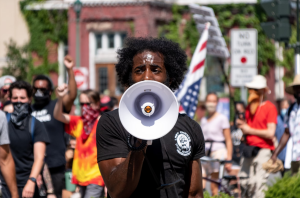Healer Heal Thyself: Why Health Care Professionals Are Becoming Stressed, Depressed, and Suicidal

Part 2: The Future of Gender-Specific Healthcare
In Part 1, I discussed some of my own challenges as a health care professional who has been working in the field for more than fifty years. I also described the challenges facing health care providers today and why so many are leaving the profession. I introduced you to the importance of the emerging field of Gender-Specific Medicine and its founder, Dr. Marianne J. Legato.
I recently interviewed Dr. Legato for my podcast at MenAlive. She discussed the evolution of the field of gender-specific medicine, which began with a focus on women’s unmet medical needs and now is increasingly addressing men’s health needs. She says,
“The premature death of men is the most important—and neglected—health issue of our time.”
For Dr. Legato, her passion for gender-specific medicine is personal, not just professional.
“My physician father illustrated many of the biological and societal hazards of being male. My mother outlived him by a decade, mourning his absence every day.”
In her book, Why Men Die First: How to Lengthen Your Lifespan, she says,
“My father’s lifestyle was not conducive to a long and healthy life. He had what I came to consider the quintessentially male nature:
He worked with an amazing tenacity at his vocation and he never asked anyone for help or complained about the burdens it placed on him. He gook risks that were unnecessary, asked no one for advice or counsel, smoked three packs of Philip Morris cigarettes a day, ate huge amounts of pasta, oiled vegetables, and rich Italian pastries, and frequently finished his long day with a generous helping of Scotch on the rocks in one of the beautifully faceted crystal glasses he favored.”
She concludes,
“It all took a toll. He was often despondent and had outbursts of temper that were the result of what I now think was chronic depression. I think he would have considered the idea of confiding any of his issues to a psychiatrist, much less taking medications for his all-too-frequent sieges of depression, unthinkable.”
That could well have been my story and I feel grateful that I was able to break out of my denial. My wife helped, but so did another health care provider, Kay Redfield Jamison. Dr. Jamison is one of the world’s leading experts on depression and bipolar disorder and wrote the definitive text. In her book, An Unquiet Mind: Memoir of Moods and Madness, she reveals her own struggles with mood disorders.
When I read her story, particularly the following words describing her own condition, which exactly mirrored my own, I knew I had found a kindred spirit.
“Others imply that they know what it is like to be depressed because they have gone through a divorce, lost a job, or broken up with someone. But these experiences carry with them feelings. Depression, instead, is flat, hollow, and unendurable. It is also tiresome. People cannot abide being around you when you are depressed. They might think that they ought to, and they might even try, but you know and they know that you are tedious beyond belief.”
She ends with these words that still run through me many years after I have successfully completed treatment:
“You’re irritable and paranoid and humorless and lifeless and critical and demanding and no reassurance is ever enough. You’re frightened, and you’re frightening, and you’re ‘not at all like yourself but will be soon,’ but you know you won’t.”
I feel blessed to have gotten the help I needed, even when I was resistant to receiving it. Things are changing, led my both men and women who recognize that men’s and women’s health issues cannot be separated and must be achieved together. One man who has been a leading voice and advocate for men and boys in the world is Gary Barker, founder of Promundo.
In a TED talk in October, 2023, “A Reframing Masculinity, Rooted in Empathy,” he says that violence in the world is a male problem, but it’s one that be changed.
“We are the most wired-to-care species on the planet. Our neurological systems, our hormonal systems, are wired to care, to nurture, to love, to form attachments with others. But it’s not automatic. If you don’t use it, if you close it off, if you hide, you don’t get good at it. But if you try and if you practice and if you learn it, you do get good at it. Even the man who seems most cut off from the world can learn it.”
Another man who is breaking new ground is Richard V. Reeves. I was sent an advance copy of his book, Of Boys and Men: Why the Modern Male is Struggling, Why It Matters, and What to Do About It.
I interviewed Reeves and learned that he has had a long interest in gender-specific healing and men’s health.
“I have been worrying about boys and men for 25 years,”
he says.
“It became clear to me that the problems of boys and men are structural in nature, rather than individual; but are rarely treated as such. The problem with men is typically framed as a problem of men. It is men who must be fixed, one man or boy at a time. This individualist approach is wrong.”
Reeves recently founded the American Institute for Boys and Men (AIBM).
“Too many boys and men are struggling – at school, at work, and in their families and communities,”
says Reeves.
“The American Institute for Boys & Men is the first national organization committed to objective research and policy development to enhance the wellbeing of boys and men.
In a recent article posted by AIBM, “Where Are the Men: Male Representation in Social Work and Psychology,” they say,
“Mental health needs are pervasive among men, yet the share of men meeting those needs in mental health professions is low and declining. Key Takeaways include:
- Men account for only 18% of social workers and 20% of psychologists. The shortage of men is particularly severe in subfields like child and school psychology.
- The representation of men in these mental health professions has halved in recent decades, down from a male share of 38% in social work and 68% in psychology in 1968 [the year I graduated from U.C. Berkeley].
- This downward trend looks set to continue: the male share of recipients of master’s degrees and above is 20% in psychology and 12% in social work, and men in psychology are on average older than women.
- Men are less likely to seek mental health support: in 2022, 27% of women spoke to a mental health professional or took medication for anxiety or depression compared to only 16% of men.”
We need more male health care professionals and we need more men who are trained in understanding gender-specific medicine and health care. I will be offering a series of courses later this year to address these needs. In a recent article “Calling All Men: Are You Ready to Get Healthy in Body, Mind, and Spirit in 2024?,” I describe what I will be offering.
If you’re interested in learning more, drop me an email to Jed@Menalive.com. Put “Men’s Courses” in the subject line.
To read more articles like these, please consider subscribing to my free newsletter.
In Part 3 of the series, I will discuss additional healing tools that healthcare professionals need to know about in order to improve their own health and wellbeing as well as those we serve.







